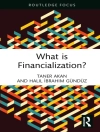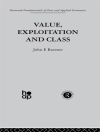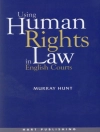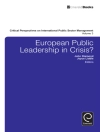War and Peace by Pierre-Joseph Proudhon, originally published in 1861, is still one of the only extended accounts of anarchist international theory and is one of the earliest in the history of socialist thought. It is a profound contribution to the traditions of jus gentium and just war theory, that puts force and power at the centre of analysis. Alex Prichard’s introduction describes both its specificity and the multiple lines of influence War and Peace had on thinkers as diverse as Tolstoy, Sorel, French sociology more broadly, and post-1945 Anglo-American International Relations theory.
Inhaltsverzeichnis
Introduction and acknowledgments
Note on the translation
PREFACE
BOOK ONE: THE PHENOMENOLOGY OF WAR
FIRST CHAPTER: On the phenomenality of war
CHAPTER II: War a Divine Act
CHAPTER III: War as religious revelation
CHAPTER IV: War as justice revealed
CHAPTER V: War as revelation of the ideal
CHAPTER VI: War, the discipline of humanity
CHAPTER VII: The warrior, greater than nature
CHAPTER VIII: War and peace, correlative terms
CHAPTER IX: The problem of war and peace
SECOND BOOK: ON THE NATURE OF WARFARE AND RIGHT OF FORCE
FIRST CHAPTER: Disagreement between the testimony of the human race and the jurisconsults’ doctrine regarding the act and right of war
CHAPTER II: War is brought forth as a judgment delivered in the name and by virtue of force. The universal conscience declares this judgment the norm; the jurisprudence of the authors rejects it
CHAPTER III: Consequences of the doctrine professed by the authors regarding the right of force
CHAPTER IV: More on the same subject. The theory of Wolff and Vattel
CHAPTER V: That the negation of the right of force renders the philosophy of right impossible
CHAPTER VI: That the right of force was not known to Hobbes. A critical examination of that author’s system
CHAPTER VII 173: Theory of the right of force
CHAPTER VIII: Application of the Right of Force. 1. The definition and object of the Right of War
CHAPTER IX: Application of the Right of Force. 2. Object and determination of the rights of peoples
CHAPTER X: The same subject continued: Contemporary issues
CHAPTER XI: More on the same subject: Political Right, Civil Right, Economic Right: The Range of Rights
CONCLUSION
BOOK THREE: The Forms of War
SUMMARY
CHAPTER 1: On warfare and its validity
CHAPTER II: More on the same subject. The legality of the Italian revolution demonstrated by the right of force
CHAPTER III: On the regulation of weapons and the policing of combat295 CHAPTER IV: The critique of military operations and tactics: An examination of what caused the downfall of the First French Empire
CHAPTER V: The critique of military operations: On the destruction of the enemy’s resources. On marauding, seizures, levies and hirelings
CHAPTER VI: The critique of military operations: weapons, espionage and the ruse
CHAPTER VII: The critique of military operations: vandalism, sieges, blockades, rape, pillage, murder, single combat, prisoners of war
CHAPTER VIII: The critique of military operations. The battle
CHAPTER IX: Various matters. 1. Is the right of peoples devoid of sanction? 2. Declarations of war. 3. To what lengths can resistance be taken? 4. Regarding interruptions to trade. 5. Whether the subjects of enemy powers are enemies. 6. On alliances
CHAPTER X: Various matters. 7. Neutrals. 8. Mercenaries. 9. Hostages. 10. Armistices. 11. Captives. 12. Privateering. 13. Whether the expansion of a State is adequate grounds for war for the rest. 14. Peace treaties
CONCLUSION
BOOK FOUR: ON THE PRIMARY CAUSE OF WARFARE
SUMMARY
CHAPTER I: The need to probe beyond political considerations when determining the precise causes of warfare
CHAPTER II: The underlying principles of political economy: The laws of poverty and equilibrium
CHAPTER III: The illusion of wealth. The origin and universality of pauperism
CHAPTER IV: The influence of pauperism on the State and international relations
CHAPTER V: War and plunder. Confusing war’s political motives with its economic cause
CHAPTER VI: Warfare among the Greeks, up until Alexander. The transition from piracy to conquest
CHAPTER VII: War and conquest. The distinction between war’s political motives and its economic cause
CHAPTER VIII: More on the same subject
CHAPTER IX: That conquest, which should have put paid to plunder, has preserved it
CHAPTER X: The political and social revolutions that would follow war between France and England
CHAPTER XI: What conquest has a tendency to become: the reduction of war to the absurd
CONCLUSION
BOOK FIVE: THE TRANSFORMATION OF WAR
SUMMARY
FIRST CHAPTER: That in every war, and on both sides, the immorality of the cause and iniquity of the ends entails the dishonesty of means
CHAPTER II: More on the same subject. The question it raises
CHAPTER III: A prior consideration: politics subordinated to economics; the incompetence of trial by strength; the suspension of hostilities
CHAPTER IV: The final objections of militarism
CHAPTER V: Objections answered: by its very evolution, it is war that resolves itself in peace. The transformation of the antagonism
GENERAL CONCLUSIONS: A new right: a new mission
Index
Über den Autor
Alex Prichard is Associate Professor of International Relations at the University of Exeter. He has written widely on Proudhon’s thought and on the political theory of anarchy. His most recent project is Anarchic Agreements: How to Build Groups and Coalitions with PM Press.












